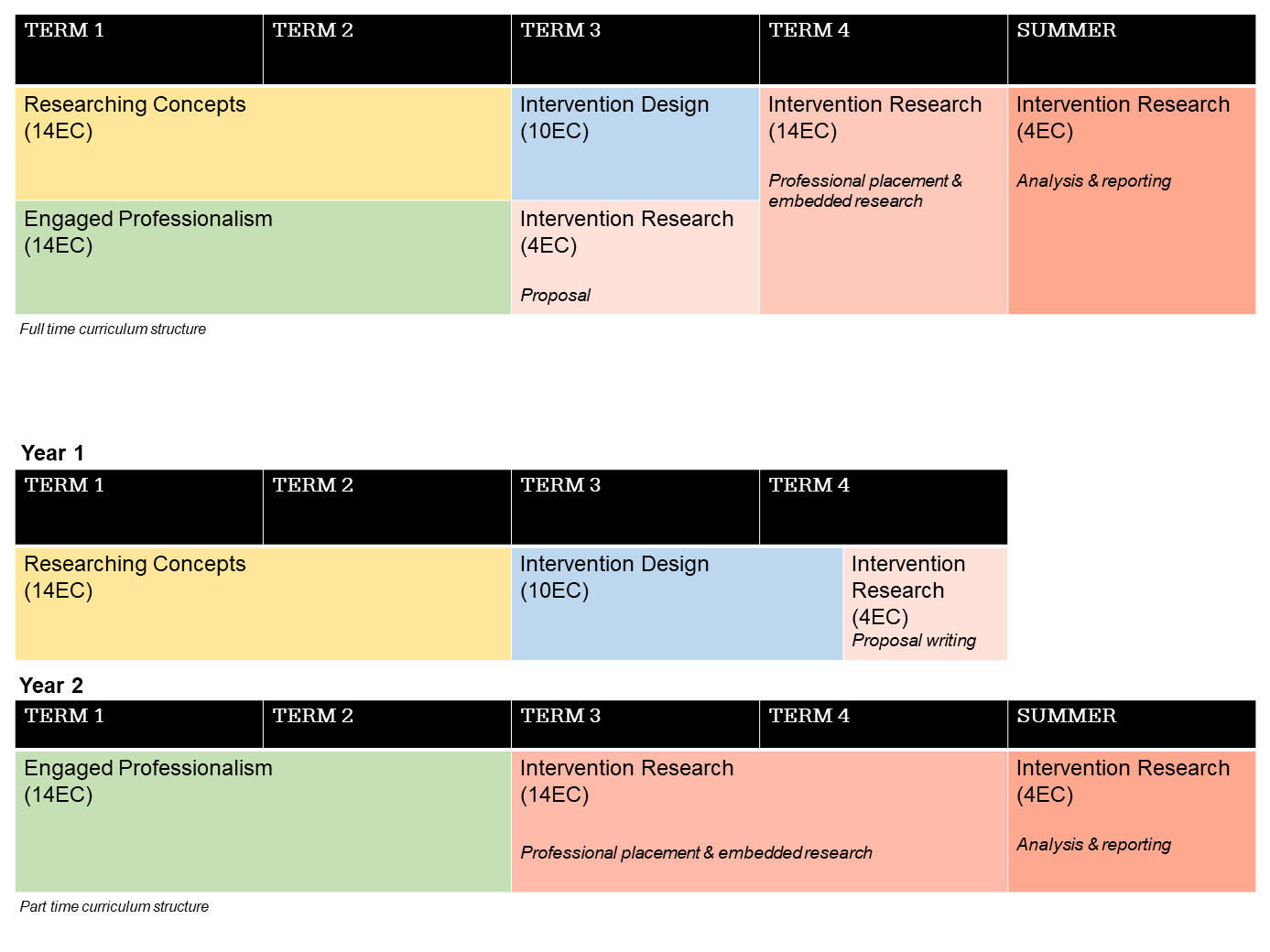Curriculum
The master’s degree programme Applied Museum and Heritage Studies is a 60 EC programme. The structure of the programme is modular, with each module consisting of a self-contained unit of teaching, learning and assessment. The programme starts with reflecting and exploring, then expects students to start creating new concepts in groups, and concludes with independent intervention research. In the discussions, students are challenged to make connections to the previous modules: from the first two modules, in which the common grounding is shaped, up to the group design project and the individual research project. Having said that, by offering the first two modules in parallel, we are able to accommodate part time students. Given the work experience of the part time students are capable of continuing to module three without the professional module two.

Concepts discussed in Researching Concepts are studied in a practical context in Engaged Professionalism. The knowledge of theory (concepts) and practice are applied in Intervention Design, where students make collective decisions in a creative process. In the final module, Intervention Research, students will have to apply their knowledge independently and make autonomous decisions. This sequence is in line with Bloom’s taxonomy of learning objectives. In Researching Concepts and Engaged Professionalism the emphasis is on understanding, applying and analysing. In Intervention Design and Intervention Research students are to evaluate and create, the highest levels in Bloom’s taxonomy.
Researching concepts
In conversation with academic experts, students reflect, at a conceptual level, on different academic and professional discourses about the dynamics of culture and societal change. The use and meaning(s) of key concepts such as culture, identity, heritage, sustainability, inclusivity, participation, authenticity and digitality are discussed, using concrete examples from different historical, social and spatial contexts. Students are given the tools to research these concepts. More detailed information can be found in the module summary.
Engaged professionalism
While becoming acquainted with innovative approaches and methods in conversation with distinguished professionals and through workshops and field visits, students explore and discuss the practical and ethical challenges of museum and heritage work in direct relation to issues of sustainability, inclusivity and digitality. More detailed information can be found in the module summary.
Intervention design
Working in small groups on a client-requested intervention, such as an exhibition concept, collection advice or public programme, students collectively develop a design and try to obtain support for new approaches and ideas for museum and heritage interventions, taking into consideration the conceptual and practical challenges addressed in the previous modules and being taught the principles of project and change management at the same time. More detailed information can be found in the module summary.
Intervention research
Working as an embedded researcher at a museum or heritage organisation, students conduct research independently while developing, implementing or assessing an intervention in the museum or heritage field in relation to one of the topical issues: sustainability, inclusivity or digitality. Past students have conducted these placements at institutions such as Netherlands Institute for Sound and Vision, Museum van Loon, Stichting 2030, Van Gogh Museum, KI Culture, National Museum of Antiquities, Meertens Institute and Slot Loevesteyn. More detailed information can be found in the module summary.